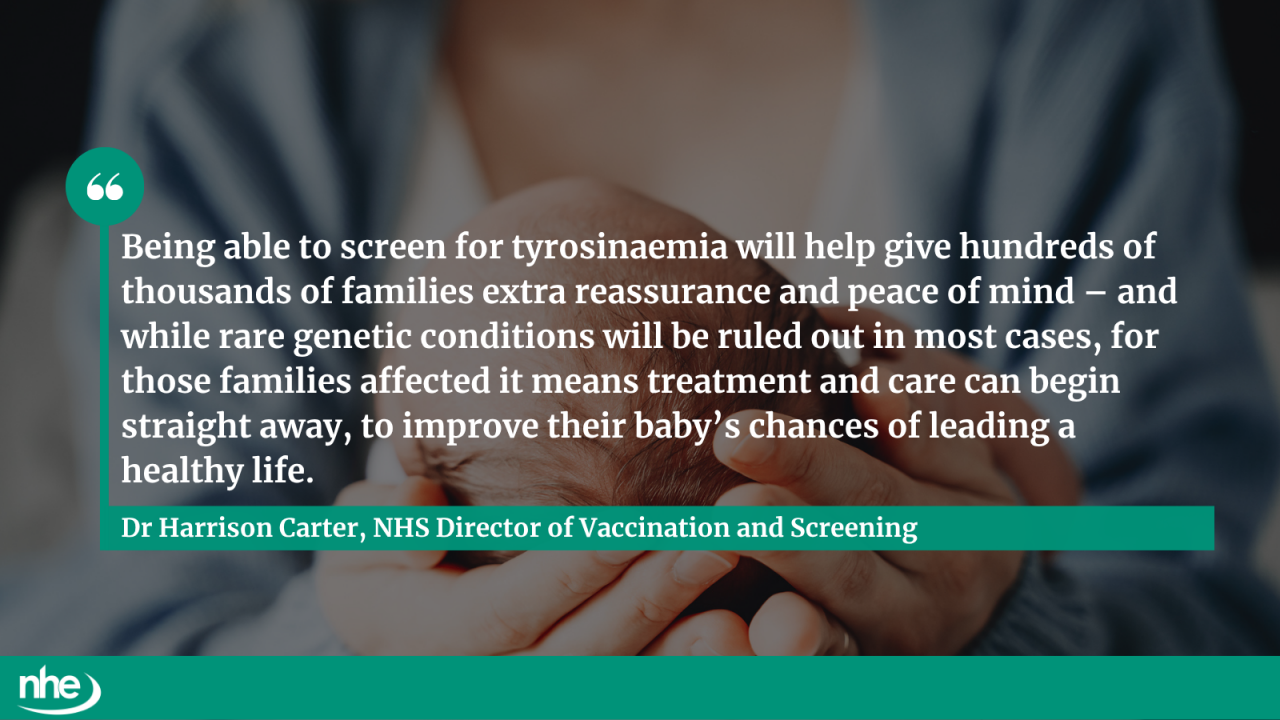Newborn babies in England will now be routinely screened for Hereditary Tyrosinaemia Type 1 (HT1), a rare but life-threatening metabolic disorder, as part of the NHS Newborn Blood Spot Screening Programme.
HT1 affects around seven babies per year in the UK and, if left untreated, can lead to organ damage, liver failure, and even liver cancer. The condition will now be detected through the heel-prick blood test carried out on the fifth day after birth, allowing for early diagnosis and treatment before symptoms appear.
HT1 is caused by a genetic mutation that prevents the body from properly breaking down the amino acid tyrosine, leading to a build-up of toxic substances in the blood. Early detection enables babies to begin daily treatment with Nitisinone and follow a tyrosine-restricted diet, significantly reducing the risk of long-term complications.
Once diagnosed, infants will be placed on a regulated milk feed (breast or formula) alongside a special low-tyrosine formula, with older children supported by specialist dietitians to manage their condition.
The NHS’ Director of Vaccination and Screening, Dr Harrison Carter, commented:
“Being able to screen for tyrosinaemia will help give hundreds of thousands of families extra reassurance and peace of mind – and while rare genetic conditions will be ruled out in most cases, for those families affected it means treatment and care can begin straight away, to improve their baby’s chances of leading a healthy life.
“This is a really vital step forward in care for newborn babies and will be important news for families who might be at risk of potentially life-threatening hereditary genetic conditions.”

The decision to include HT1 in the screening programme follows a recommendation from the UK National Screening Committee, recognising the importance of early detection in preventing serious health outcomes.
This expansion of the screening programme reflects the NHS’s commitment to early intervention, personalised care, and lifesaving treatment for rare conditions.
Parents are encouraged to ensure their newborns receive the heel-prick test, which now includes screening for HT1 alongside other serious conditions.
Image credit: iStock



















